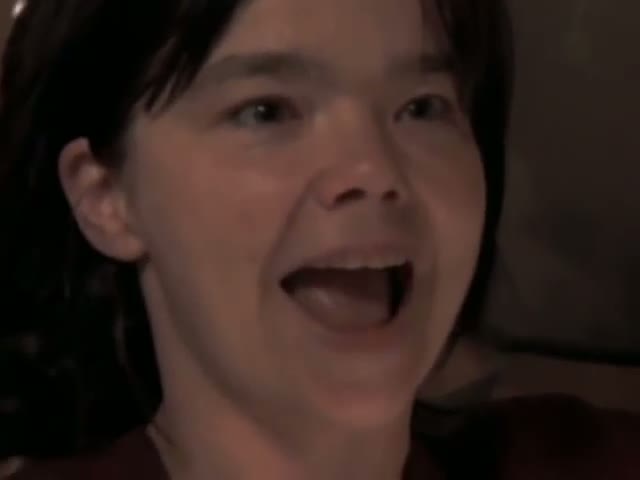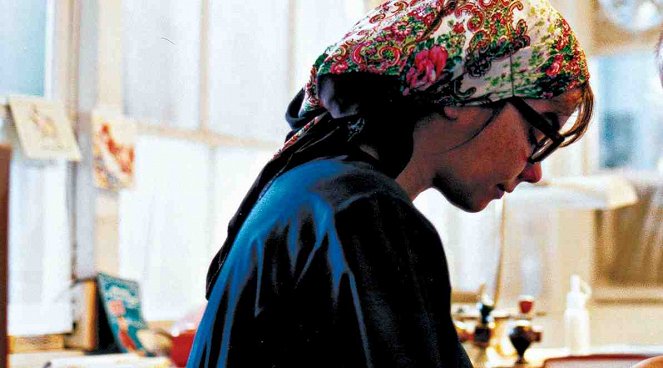Directed by:
Lars von TrierScreenplay:
Lars von TrierCinematography:
Robby MüllerComposer:
BjörkCast:
Björk, Catherine Deneuve, David Morse, Peter Stormare, Joel Grey, Cara Seymour, Jean-Marc Barr, Vincent Paterson, Siobhan Fallon Hogan, Željko Ivanek, Udo Kier (more)VOD (2)
Plots(1)
Selma (Björk) is a Czech immigrant, a single mother working in a factory in rural America. Her salvation is her passion for music, specifically, the all-singing, all-dancing numbers found in classic Hollywood musicals. Selma harbours a sad secret: she is losing her eyesight and her son Gene stands to suffer the same fate if she can’t put away enough money to secure him an operation. When a desperate neighbour falsely accuses Selma of stealing his savings, the drama of her life escalates to a tragic finale. (official distributor synopsis)
(more)Videos (1)
Reviews (5)
No, Lars von Trier is not my cup of tea and his films just don't appeal to me that much. At least not all of them. And the movie "Dancer in the Dark" is one of those films that didn't really resonate with me. The musical numbers were surprisingly good, but the story just seemed quite simple and only amplified by that stylization.
()
Yeah, by the end Lars is pushing things too hard, but it still worked on me. A terribly depressive mockery of the poor viewer. Only one little thing bothered me: that Lars did not look after a couple of details arising form the fact that the protagonist, Selma (!) is from Czechoslovakia. But who cares, Dancer in the Dark hit me emotionally and I spent a lot of time watching the musical set pieces. PS: “I’ve Seen It All” is a great song!
()
Dancer in the Dark is an exceptional film. To use a musical as a metaphor and merge it with a theme like this – that's just genius! This time I have to mention the fact that Lars von Trier's films, compared to most other productions, are a real emotional and intense experience for me, which quite often lingers in me for days (which happens very rarely indeed.)) As in Breaking the Waves, the main character here is a suffering woman whose moral values and sense of "the right thing" clash with the injustice and disproportionate cruelty (especially psychological) of ordinary people. Lars von Trier certainly doesn't put these types of characters in his films for the sake of it; on the contrary, through the clash of their pure characters with "the evil world" he holds up a mirror to us and forces the ordinary person to reflect on his values – on the other hand, it is sad that we need to first "experience" the suffering and the evil committed in a naturalistic way in the film in order to force ourselves to reflect on it (but sometimes even that doesn't help, unfortunately. )) Even though Dancer in the Dark is not a film about nice things, it is still beautiful and unique in its own way – at least in how much emotion it contains and how credibly it can portray human morality and human suffering. The musical interludes, in which Björk excels vocally and expressively, are a damn fine icing on an already well made (though probably quite hard to digest for some) cake. It's true that the director is quite relentless in his attacks on the viewer's feelings, and it's also quite likely that if you internally go through the whole crazy whirlwind with the main character, you'll probably feel like a fly in a spider's web at the end. However, as controversial and provocative as Dancer in the Dark is, it's still a hugely engaging, masterfully directed work whose meaning or mission is huge.
()
I can't help it, but at the end of the film Lars von Trier tries to wring tears out of the audience at any cost, proving his famous cynicism, which works reliably in many of his films, but not here. He could have spared us the moment at the end when Björk cries hysterically as the hood is pulled over her head. It was cheap and gratuitous, and that's when von Trier's went too far. The three stars go mainly for the music and the great performances, especially David Morse and Björk, who literally lives her role.
()
I admit that just the Czechoslovakian pseudo-realities almost killed me because that's just not the way things are. These aspects are very tragic and made the film totally unacceptable in the Czech Republic. On the other hand, even if the whole thing existed only as a music video for "I've seen it all," that would be enough to make Björk immortal. Unfortunately, as a whole, it is a very problematic leftist musical and it is far from being saved by Buñuel's favorite Catherine Deneuve, who looks ridiculous in overalls.
()



Ads